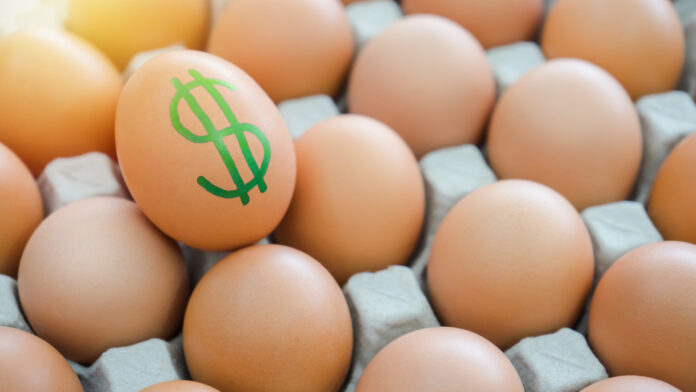This is the right time to get creative in the kitchen using egg-free baking alternatives.
The soaring price of eggs has created an affordability problem for bakers in the US. Figures released by the U.S. Department of Agriculture show that the average cost of one dozen eggs reached an all-time high of $8.17 at the beginning of March 2025.
Some people already avoid eggs due to allergies or because they follow a vegan diet, but the soaring egg prices are an even bigger incentive.
This article will feature nine great egg substitutes to help you maintain the quality of your baked goods while keeping costs down.
Stan Lee: The Final Chapter: Documentary Reveals Alleged Abuse and Exploitation
Best Egg-Free Baking Alternatives
Some egg alternatives are better for heavy, dense products, while others are great for light and fluffy baked goods.
Here are some of the best egg-free baking replacements and how to use them:
-
Applesauce
A great substitute for eggs in baked goods, applesauce adds moisture and a slight sweetness. Use 1/4 cup of unsweetened applesauce for each egg in your recipe. This method works well for banana bread and muffins.
- Applesauce is often flavored with nutmeg and cinnamon.
- It’s best to use unsweetened applesauce to avoid altering the taste of your recipe.
2. Mashed Banana
Banana works similarly to applesauce, adding moisture and a touch of natural sweetness. Use 1/4 cup of mashed banana per egg. Keep in mind that banana has a distinct flavor that may come through in the final dish.
- Other puréed fruits like pumpkin and avocado can also work.
- Best used in pancakes, baked oatmeal, and cookies.
3. Ground Flaxseeds or Chia Seeds
Ground flaxseeds and chia seeds are highly nutritious and serve as great egg replacements.
- Mix 1 tablespoon of ground chia or flaxseed with 3 tablespoons of water until fully absorbed and thickened.
- This works well in pancakes, muffins, and cookies, though it may result in a nuttier flavor.
4. Silken Tofu
Silken tofu is a neutral-tasting egg substitute that adds creaminess and binding power. Use 1/4 cup of blended silken tofu per egg.
- Works best in dense baked goods like brownies, cornbread or cakes.
- Silken tofu provides moisture and structure to recipes.
- Requires refrigeration.
5. Vinegar and Baking Soda
Mixing 1 teaspoon of baking soda with 1 tablespoon of vinegar can replace one egg in most recipes.
- The chemical reaction produces carbon dioxide and water, making baked goods light and airy.
- Best used for cakes, cupcakes, and quick breads.
6. Yogurt or Buttermilk
A smooth and creamy alternative, yogurt adds moisture and a bit of binding power. Use 1/4 cup of yogurt per egg.
- Use plain, unsweetened yogurt to avoid altering the flavor.
- This substitution is excellent for muffins, cakes, and cupcakes.
- Requires refrigeration.
7. Nut Butter
Nut butters like peanut, cashew, or almond butter can also be used to replace eggs.
- Use 3 tablespoons of nut butter per egg.
- Works best in brownies, pancakes, and cookies.
8. Carbonated Water
Carbonated water adds moisture to a recipe and acts as a leavening agent.
- Use 1/4 cup of carbonated water per egg.
- Helps create light and fluffy textures in cakes, cupcakes, and quick breads.
9. Gelatin
Gelatin is a gelling agent that can substitute for eggs in many recipes.
- Dissolve 1 tablespoon of unflavored gelatin in 1 tablespoon of cold water.
- Mix in 2 tablespoons of boiling water until frothy.
- Works well for cookies and brownies.
With so many easy options, you never have to worry about missing eggs in your recipes. Eggs are healthy and are used in almost everything you bake. But there are some egg-free baking options that are just as healthy. That’s why it’s important to keep alternatives in mind.



